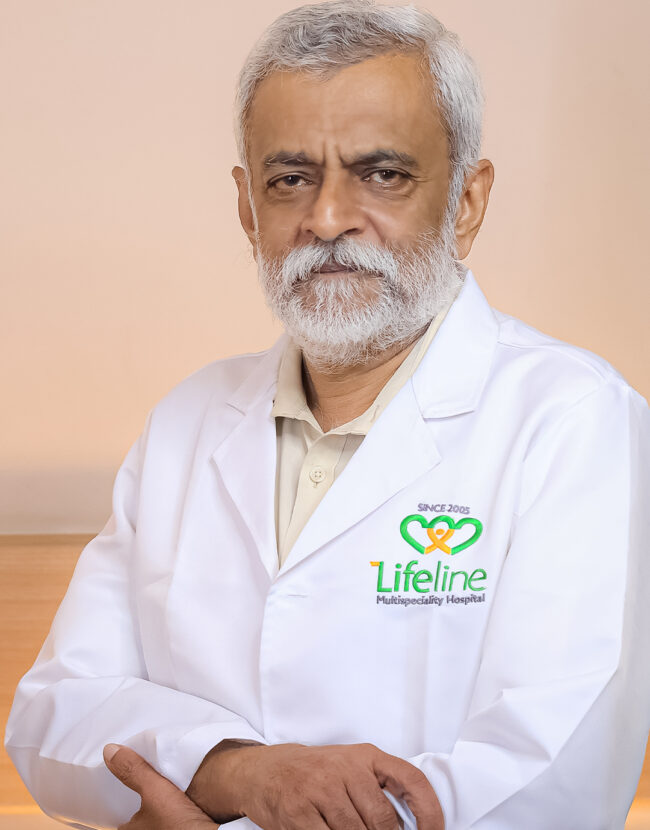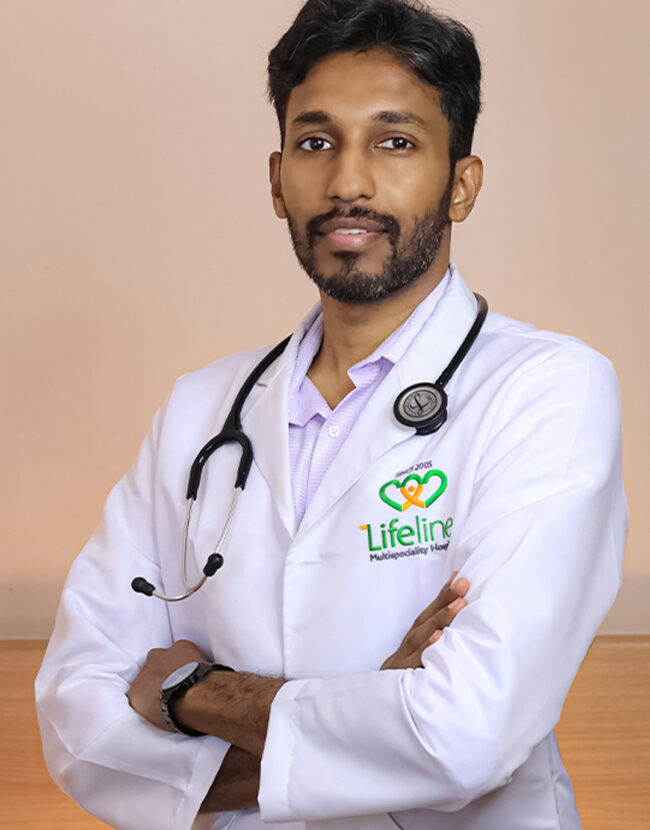General Medicine
Our department of General Medicine is the primary diagnosis, prevention, and treatment center where people are given priority high-level care. Our community is threatened by chronic diseases including asthma, arthritis, anxiety, cholesterol, COPD (chronic obstructive pulmonary disease), cold, diabetes, Fever, Flu, heart disease, hypertension, infections, and unpredictable injuries. The Lifeline Hospital is committed to delivering exemplary, patient-centered, efficient, and effective general medical care, encouraging preventive medicine, and promoting health.
Why Choose The Lifeline Hospital Adoor for Internal Medicine?
Expertise You Can Trust
Comprehensive Internal Medicine Services
Lifestyle Disease Management
Infectious Disease Management
Perioperative Evaluation
Obstetric Medicine
Adult Vaccination
Health Check-up and Wellness Clinic
Intensive Care and Medical Emergencies Management
Geriatric Medicine
Coordination with Specialists
Our Doctor
Dr. Biju George
Dr. Dennis Peter
Dr. Surya V S
Dr. Alphin Tom
Dr. Lissy George
Refined Wellness
for Your Body and
Mind
State-of-the-Art Facilities
Our internal medicine department is equipped with the latest medical equipment and technology to ensure safe and effective care. Our facilities include:
Advanced Diagnostics and Laboratory Support
Accurate diagnostic testing and laboratory services.
24/7 Emergency Medical Care
mergency medical care available 24/7.
Personalized Care
We believe in providing patient-centered care and personalized treatment plans tailored to each patient's unique needs.
FAQs for General Medicine in Pathanamthitta, Kerala
No, you can book an appointment directly.
We offer various age-appropriate and condition-specific health check-up plans.
Yes, our physicians specialize in managing chronic diseases with long-term follow-up care.
Error: Contact form not found.







